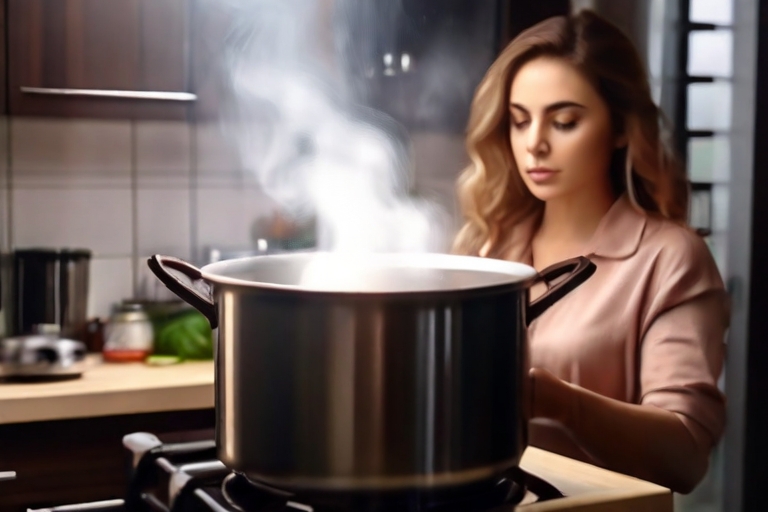
Having access to clean and safe drinking water is absolutely crucial for ensuring optimal health and overall well-being. With various water purification methods available, it can be overwhelming to determine which one is the best for your needs. In this article, we will compare filtered water, purified water, and boiled water to help you make an informed decision. Understanding how each method works and its benefits will enable you to choose the most suitable water purification method for your household.
The Significance of Clean and Safe Drinking Water
The provision of clean and safe drinking water plays a vital role in maintaining our overall well-being. Contaminated water can contain harmful microorganisms, chemicals, and pollutants that can lead to waterborne diseases and other health issues. Consuming impure water can cause gastrointestinal problems, weakened immune system, and even long-term health complications. Therefore, it is essential to ensure that the water you drink is properly purified to eliminate any potential risks.
Understanding Different Water Purification Methods
There are several water purification methods available, each with its own unique advantages and disadvantages. The three primary methods we will focus on are filtered water, purified water, and boiled water. Understanding how these methods work and what they offer will help you determine which one suits your needs best.Filtered Water: How It Works and Its Benefits

Filtered water is obtained by passing water through a physical barrier to remove impurities. Water filters can effectively remove contaminants such as sediment, chlorine, heavy metals, and microbial cysts. The filtration process typically involves activated carbon, ceramic, or reverse osmosis membranes. Filtered water not only improves the taste and odor of water but also provides an additional layer of protection against harmful substances.
One of the significant benefits of using a water filter is that it retains essential minerals present in water, such as calcium and magnesium. These minerals contribute to the taste and nutritional value of the water. Additionally, filtered water is a cost-effective and environmentally friendly option compared to bottled water. By using a water filter, you can reduce plastic waste and save money in the long run.
However, it is essential to note that water filters require regular maintenance and replacement of filter cartridges to ensure optimal performance. Neglecting filter maintenance can lead to decreased effectiveness and potential contamination. It is recommended to follow the manufacturer's guidelines and replace filters as recommended to maintain the quality of filtered water.
Purified Water: What It Means and How It Is Achieved

Purified water goes through a more rigorous purification process compared to filtered water. The goal of purification is to remove all impurities, including microorganisms, dissolved solids, and chemicals. The most common methods used for water purification are distillation, reverse osmosis, and ion exchange.
Distillation involves heating the water to boiling point, collecting the steam, and condensing it back into liquid form. This process effectively removes contaminants, leaving behind purified water. Reverse osmosis, on the other hand, uses a semi-permeable membrane to separate impurities from the water. It is highly effective in removing dissolved solids and contaminants such as lead, arsenic, and nitrates. Ion exchange involves the use of resin beads to remove dissolved ions from the water, replacing them with less harmful ions.
Purified water is free from most impurities, including bacteria, viruses, chemicals, and minerals. It is suitable for individuals with specific health concerns or those living in areas with poor water quality. However, it is important to note that the purification process may remove essential minerals from the water. If you choose purified water, it is advisable to obtain these minerals from other dietary sources.
Boiled Water: The Traditional Method of Water Purification

Water purification has been practiced for centuries and boiling water is one of the most ancient and straightforward techniques used. It effectively kills most microorganisms and pathogens that may be present in the water. Boiling is particularly useful when dealing with water from questionable sources or during emergencies when other methods are not available. Boiled water is considered safe for drinking once it has reached a rolling boil and been maintained at that temperature for at least one minute.
Boiling water is a cost-effective and accessible method of water purification. It does not require any additional equipment or chemicals. However, it is essential to consider the drawbacks of boiling water. Boiling does not remove chemicals or dissolved solids from the water. It also does not improve the taste or odor of the water. Additionally, boiling water consumes time and energy, making it less practical for everyday use.
Comparing Filtered Water, Purified Water, and Boiled Water
When comparing filtered water, purified water, and boiled water, several factors need to be considered. These factors include effectiveness in removing contaminants, maintenance requirements, cost, convenience, and environmental impact.Filtered water is effective in removing a wide range of contaminants and provides an additional layer of protection against impurities. It retains essential minerals, is cost-effective, and environmentally friendly. However, it is crucial to regularly perform maintenance and replace filters to ensure optimal performance.
Purified water goes through a rigorous purification process to remove all impurities. It is suitable for individuals with specific health concerns or those living in areas with poor water quality. However, it may remove essential minerals, and the purification process can be costly.
Boiled water is a simple and accessible method of water purification. It effectively kills microorganisms but does not remove chemicals or dissolved solids. Boiling water requires time and energy, making it less practical for everyday use.
Factors to Consider When Choosing a Water Purification Method
When choosing a water purification method, several factors should be considered. These factors include the quality of your water source, the specific contaminants you want to remove, your budget, convenience, and sustainability. Assessing these factors will help you determine the most suitable water purification method for your needs.If your water source is relatively clean and you only need to remove minor impurities, a water filter may be sufficient. If you require more comprehensive purification, such as removing dissolved solids or chemicals, a water purifier may be a better choice. If you are dealing with questionable water sources or need a temporary solution, boiling water can be an effective method.
Pros and Cons of Water Filters
Water filters offer several advantages, including effective removal of contaminants, improved taste and odor, and retention of essential minerals. They are cost-effective and environmentally friendly. However, water filters require regular maintenance and filter replacement.Pros and Cons of Water Purifiers
Water purifiers provide thorough purification, removing all impurities from the water. They are suitable for individuals with specific health concerns or poor water quality. However, they may remove essential minerals and are generally more expensive.Pros and Cons of Boiling Water
Boiling water is a simple and accessible method of water purification. It effectively kills microorganisms and is suitable for emergencies or questionable water sources. However, boiling does not remove chemicals or dissolved solids and can be time-consuming.Choosing the Best Water Purification Method for Your Needs
To choose the best water purification method for your needs, consider the quality of your water source, the specific contaminants you want to remove, your budget, and convenience. Assessing these factors will help you determine whether a water filter, water purifier, or boiling water is the most suitable option for you.Recommended Water Purifier Brands and Models
When selecting a water purifier, it is important to choose a reliable brand and model. Some recommended brands include LG, Aquxsana, and Purext. These brands offer a range of models with different purification technologies to suit various needs and budgets. Researching customer reviews and seeking professional advice can also help you make an informed decision.Water Dispenser Options for Convenient Access to Purified Water
For convenient access to purified water, you may consider investing in a water dispenser. Water dispensers provide instant access to hot, cold, and room temperature purified water. They come in various sizes and designs to fit different spaces and requirements. Some water dispensers also offer additional features such as water filters or UV sterilization.Conclusion: Making the Right Choice for Clean and Safe Drinking Water

In conclusion, choosing the best water purification method is essential for clean and safe drinking water. Filtered water, purified water, and boiled water each offer unique advantages and disadvantages. Assessing factors such as effectiveness, maintenance, cost, convenience, and sustainability will guide you in making the right choice for your needs. Whether you opt for a water filter, water purifier, or boiling water, ensuring clean and safe drinking water should be a top priority for your health and well-being.






 BR 32991
BR 32991  US 10030
US 10030  AR 4572
AR 4572  AO 2384
AO 2384  EC 2318
EC 2318  DE 1890
DE 1890  MY 1822
MY 1822  BD 1179
BD 1179 

